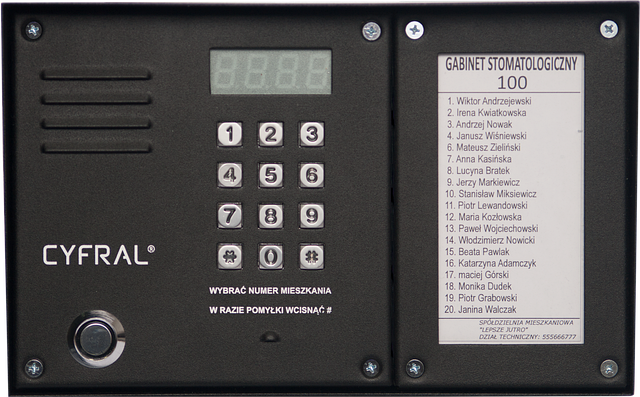Background checks are a crucial part of the rental application process, providing landlords with critical insights into potential tenants' financial stability and past behavior. Positive checks enhance tenancy chances while negative or missing rental histories can lead to application denial. These checks significantly impact the rental landscape by minimizing risks, ensuring reliable tenants, and protecting against financial losses. However, critics argue that strict checks may limit housing access for individuals with limited histories or past challenges, highlighting a ongoing debate about balancing security and inclusivity in the rental market.
In today’s digital era, understanding the impact of background checks on rental availability is crucial for both landlords and potential tenants. This article delves into the intricate world of background checks in rental applications, exploring how credit and rental history assessments influence availability. By examining tenant background checks, we uncover the effects on the entire rental application process. Additionally, we discuss the delicate balance between ensuring security and maintaining accessibility in the property rental market.
- Understanding Background Checks in Rental Applications
- The Role of Credit and Rental History Checks
- How Tenant Background Checks Affect Availability
- Exploring the Impact on the Rental Application Process
- Balancing Security and Access in Renting Properties
Understanding Background Checks in Rental Applications

Background checks play a significant role in the rental application process, serving as a crucial tool for landlords to assess potential tenants. These checks go beyond simply verifying identification and involve a thorough investigation into an applicant’s history, including their rental, employment, and credit records. By examining these aspects, landlords gain valuable insights into a tenant’s reliability and responsibility.
The impact of background checks on rental availability is profound. Positive results can increase the likelihood of securing a tenancy, as they demonstrate a history of timely rent payments, responsible pet ownership, and minimal conflicts with previous landlords. Conversely, negative or missing rental history checks may raise concerns, potentially leading to denial of the application. Landlords often use these checks to mitigate risks, ensuring a peaceful and hassle-free renting experience for both parties.
The Role of Credit and Rental History Checks

Background checks play a pivotal role in the rental application process, offering landlords crucial insights into potential tenants’ financial and past rental health. Credit and rental history checks are two common methods employed to evaluate applicants. These checks provide a comprehensive view of an individual’s financial responsibility and their track record as a tenant.
Landlords use these checks to assess the likelihood of timely rent payments and the risk of damage or non-payment. A solid credit score and positive rental history can significantly increase a candidate’s chances of securing a rental property, as it demonstrates reliability and the potential for successful tenancy. Conversely, poor credit or a history of late rent payments might lead to rejection, as landlords aim to mitigate risks associated with renting their properties.
How Tenant Background Checks Affect Availability

Background checks play a pivotal role in shaping the rental landscape by significantly influencing the availability of properties. When landlords conduct thorough tenant background checks as part of the rental application process, they gain valuable insights into a prospective tenant’s financial stability and past rental behavior. This step is crucial for property managers to minimize risks associated with vacant units and potential damage to their investments.
The impact is twofold: first, it ensures that reliable tenants are matched with suitable accommodations, promoting a harmonious living environment. Second, it acts as a protective measure against financial losses due to unpaid rent or property damage. Credit checks and rental history verifications are essential tools in this process, enabling landlords to make informed decisions. By assessing these factors, they can predict tenant behavior, thereby optimizing their rental portfolios and maintaining a steady flow of quality tenants.
Exploring the Impact on the Rental Application Process

The introduction of background checks into the rental application process has significantly altered how landlords assess potential tenants. These checks, which include verifying rental history, credit scores, and sometimes even criminal records, have become a standard practice to mitigate risk. Landlords use this information to make informed decisions, ensuring they select responsible tenants who can reliably pay rent and maintain the property.
The impact on the rental application process is notable. Tenants often need to provide numerous documents, such as previous lease agreements, proof of income, and identification, to undergo these checks. While it offers landlords peace of mind, some critics argue that strict background checks can hinder access to housing for individuals with limited or no credit history, minor infractions, or those who have overcome challenging pasts. Balancing the need for responsible renting and accommodating diverse tenant profiles remains an ongoing discussion in the real estate sector.
Balancing Security and Access in Renting Properties

In the intricate dance of securing properties and accommodating renters, striking a balance between security and access is paramount. Background checks play a pivotal role in this process, particularly during rental applications. While they help landlords gauge potential tenants’ reliability by examining rental history and credit reports, it’s crucial to consider the broader impact on availability. An overreliance on these checks might inadvertently limit access to housing, especially for individuals with no significant past issues but face minor setbacks or lack certain financial milestones.
The rental application process should strive to maintain a healthy equilibrium. Landlords must weigh the value of thorough tenant background checks against the potential consequences of narrowing down suitable applicants. Striking this balance ensures that properties remain accessible while safeguarding landlords’ investments. It’s about understanding that responsible renting isn’t just about preventing risks; it’s also about fostering a vibrant and inclusive housing market.






